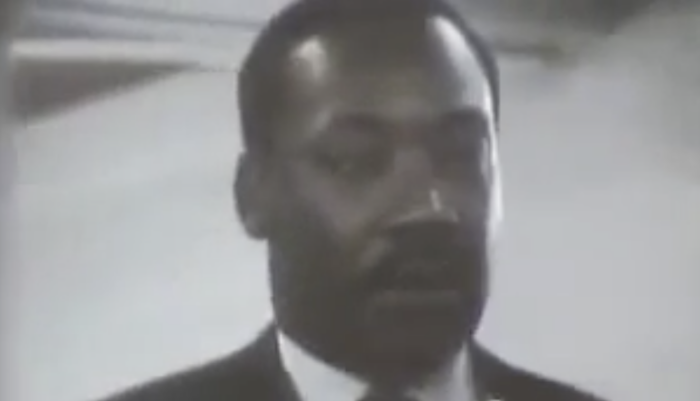“Share this clip of my father,” tweeted Bernice King, the CEO of the King Center on January 17, the holiday honoring the Rev. Dr. Martin Luther King, Jr. “We must study him beyond the end of ‘I Have a Dream.’ (and that’s taken out of context, too)”
I don’t recall seeing this video before today. It’s from a speech in 1968, but I haven’t determined the location. Dr. King spoke about the massive government assistance for mostly-white farmers over more than a century, helping “the very people [now] telling the Black man that he ought to lift himself by his own bootstraps.”
The civil rights leader delivered a similar message in other venues, for instance while visiting Ohio Northern University in January 1968, and during a March 1968 appearance at Grosse Point High School in Michigan.
Share this clip of my father. We must study him beyond the end of ‘I Have a Dream.’ (and that’s taken out of context, too) #MLK #MLKDay pic.twitter.com/bRYlVE1vlU
— Be A King (@BerniceKing) January 18, 2022
My transcript:
At the very same time that America refused to give the Negro any land, through an act of Congress, our government was giving away millions of acres of land in the west and the Midwest. Which meant that it was willing to undergird its white peasants from Europe with an economic floor.
But not only did they give the land, they built land grant colleges, with government money to teach them how to farm.
Not only that, they provided county agents to further their expertise in farming.
Not only that, they provided low interest rates in order that they could mechanize their farms.
Not only that, today many of these people are receiving millions of dollars in federal subsidies not to farm, and they are the very people telling the Black man that he ought to lift himself by his own bootstraps.
This is what we are faced with. And this is the reality. Now, when we come to Washington in this campaign, we are coming to get our check.
More than 50 years since Dr. King spoke those words, the comparatively well-off, mostly white people who still benefit from massive federal government funding (especially for large conventional farm operations) are often the ones loudly protesting public assistance for marginalized groups.

